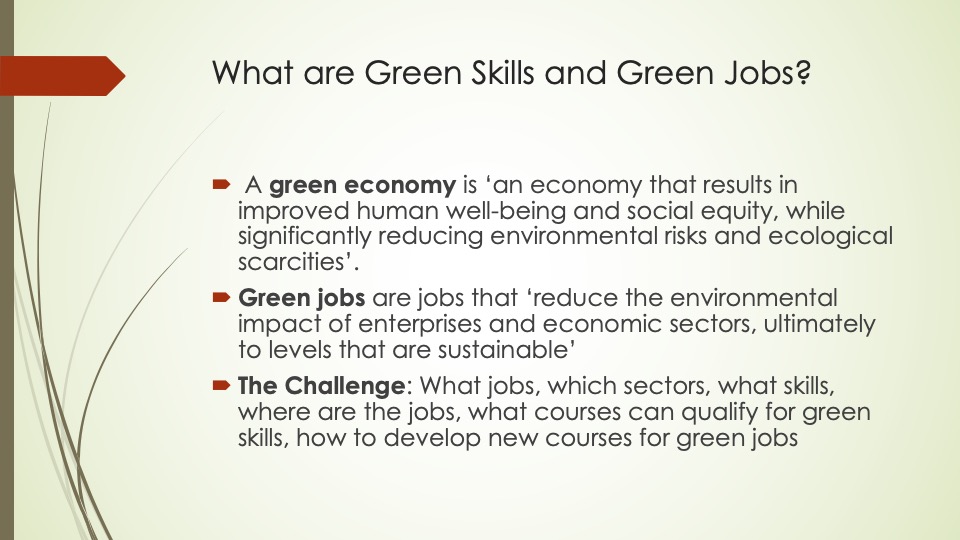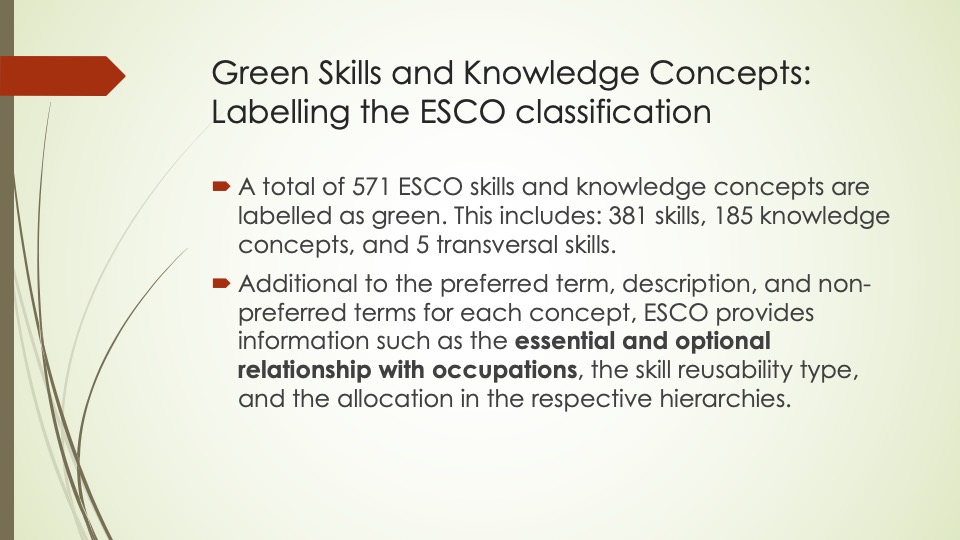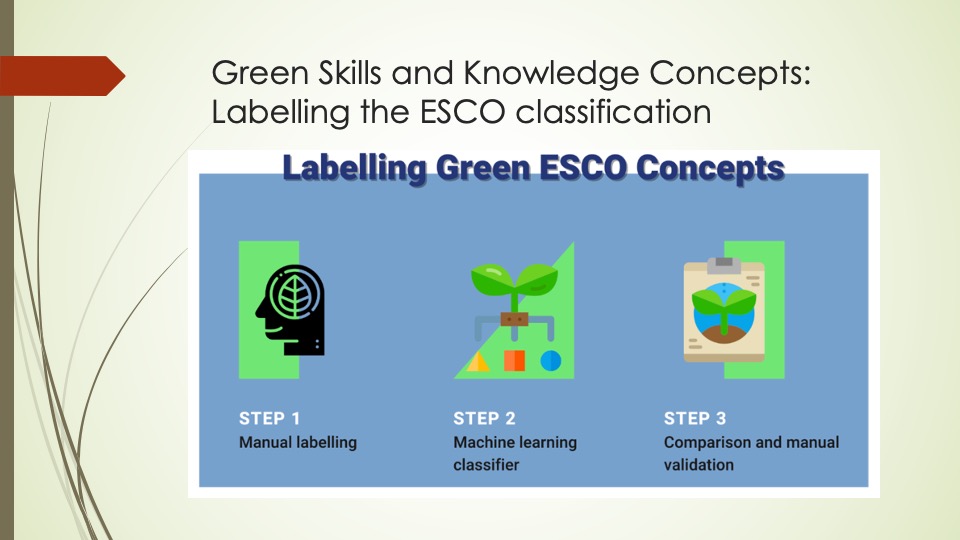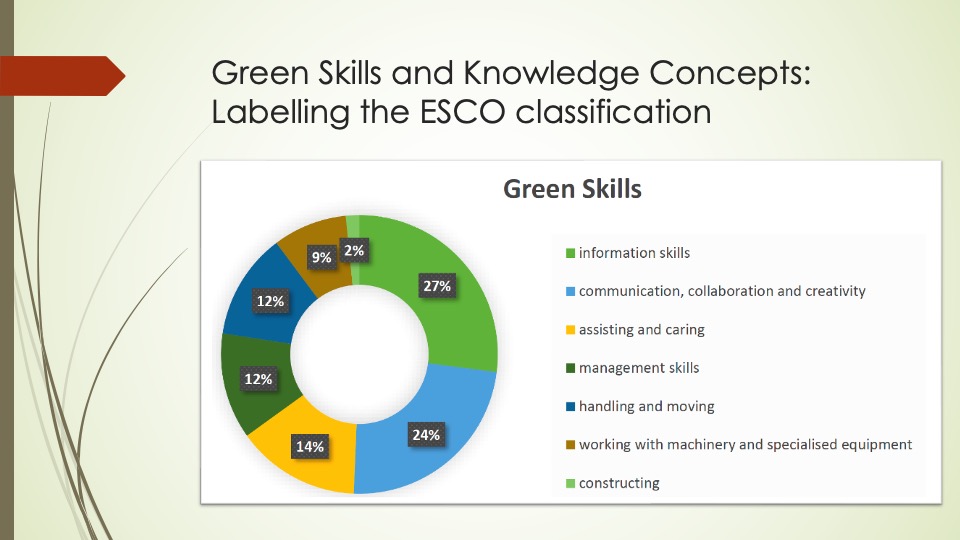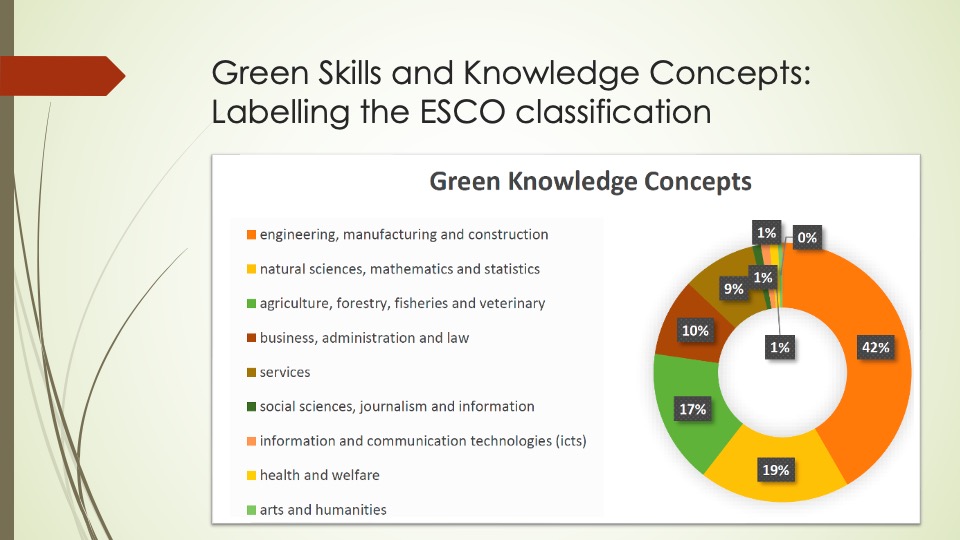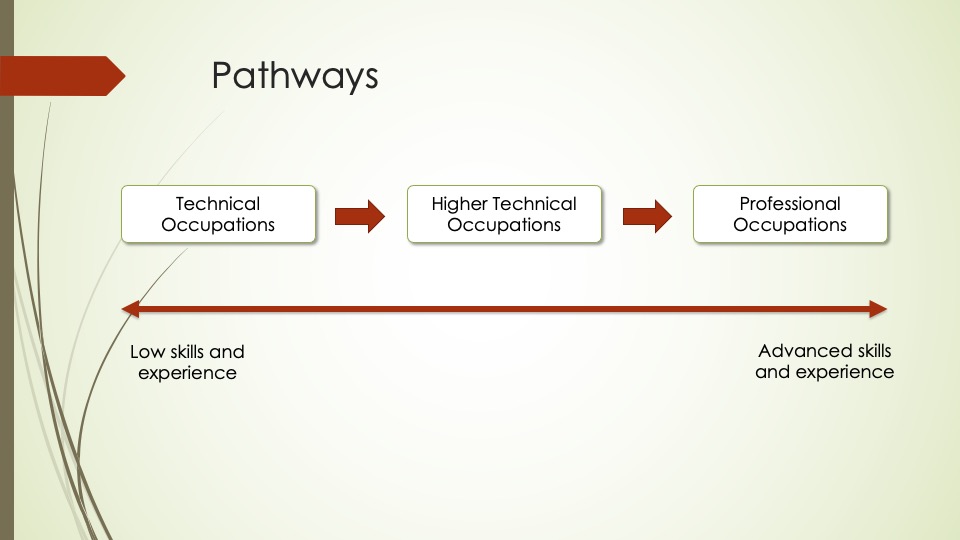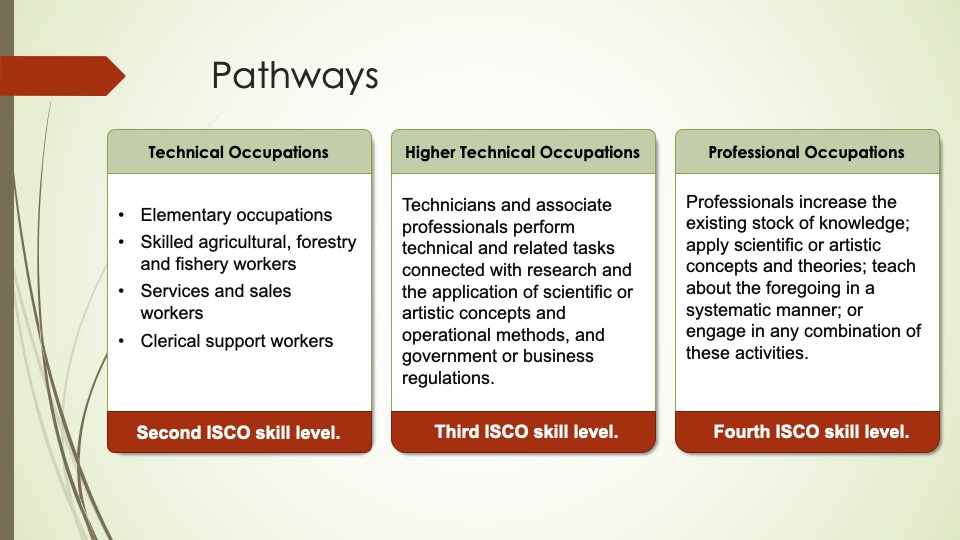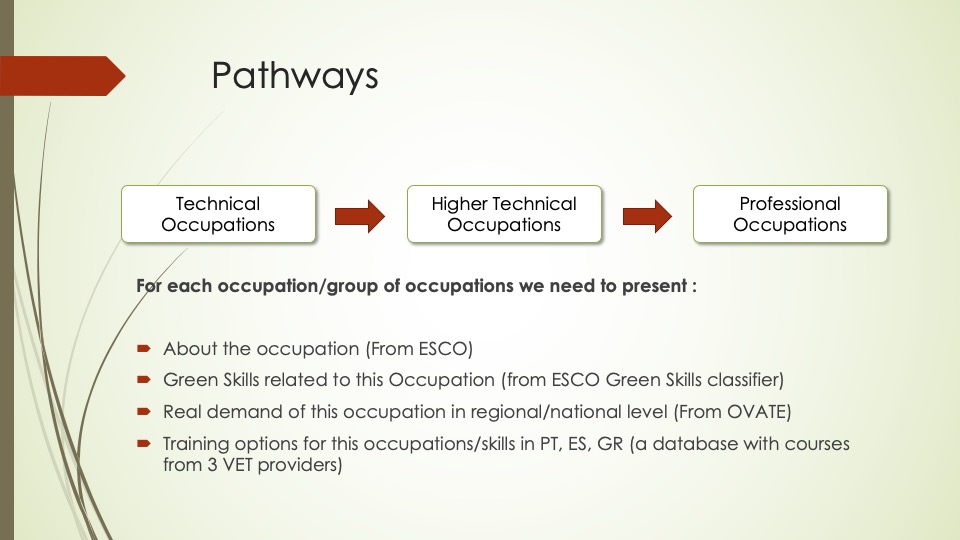WHAT ARE GREEN JOBS AND GREEN SKILLS?

It is encouraging to see a rise in initiatives and projects around Green Jobs and a seemingly considerable interest in jobs seekers and young people seeking employment in Green Jobs.
The definition of a green job varies. That’s part of the problem – we don’t know exactly what this Labour Market will look like because it depends on how you define a green job, and there is no international consensus (yet). Green Jobs can be defined by:
- Industry involved in climate transition (for example, energy infrastructure)
- Occupations directly involved in climate transition (for example, wind turbine technician);
- Skills required for climate transition, such as sustainable design, energy efficiency or environmental awareness (for example, workers involved in developing, generating, storing, transmitting and distributing energy generated from renewable, net-zero emission sources or “clean energy supply”).
The OECD has recommended that there is an international consensus on this. The closest I can find is the International Labour Organization’s (ILO) broad definition of green employment: ‘green jobs’ are those involving activities such as community adaptation to climate change, and they nod to decent jobs as well. Check out the diagram below – green jobs are the ones in the striped area.

So what do we know?
Well, Jobs and Skills Australia released a report on October 3rd, entitled The Clean Energy Generation: workforce needs for a net zero economy. Critical green jobs identified in this report are in engineering (all fields), electrical trades, such as electricians, telecommunications and air-conditioning and refrigeration techs. We need engineers, although not as much as we need environmental scientists. The report also outlines the need for lesser-known careers like mechanical fitters, marine pilots and food scientists. They anticipate a 40% increase in these roles by 2050, primarily in regional areas.
The UK’s UK Green Jobs taskforce report predicts significant GDP growth and 300,000 new jobs by 2050 linked to green technology. The critical roles identified in the UK are similar to Australia. This report identifies other green jobs required to power the energy transition – construction supply chain jobs,(planners, architects, engineers, heat pump installers) hydrogen jobs (pipe-fitters) and automotive jobs (Electric Vehicle mechanics).
The problem is that it is not really a switch from not Green Jobs to Green jobs but rather that skills are changing and jobs increasingly involve what might be called Green Skills.
The European Classification of Occupations, Skills ad Competences (ESCO) have developed the European taxonomy of skills and occupations providing a common language on occupations and skills, and also the relationships between them, specifying which skills are essential or optional for a specific occupation. In 2022 they released of the updated version of the taxonomy to support the green transition of the labour market.
“As workers need a skill set that can respond to the need of reducing emissions in working practices,” “they say, “the Skills / Competences pillar has been enriched with the additional information at skill level to distinguish green skills and knowledge concepts. This means that within the whole dataset of ESCO skills, some can now be filtered as green. ESCO also provides information such as their reusability type and are linked with occupations. All the concepts are translated in 27 languages and are available free of charge in different formats.”
The work from ESCO is valuable, especially in showing the Green Skills are needed in may jobs and occupations and not just the obvious ones. Yet the challenge remains of how to use ESCO’s classification system. ESCO have recently published a new report, Jobs for the Green Transition, Definitions, Classifications and emerging trends, hoping to deal with the issues of defining Green Jobs and Skills.
The report introduces a novel taxonomy for green jobs based on four pillars: inputs, outputs, processes, and job quality. This taxonomy aims to provide a practical framework for assessing and comparing case studies, supporting policymaking in this area. Furthermore, the report highlights recent strategies and policies, both at the EU and national levels, focusing on skill development for the green transition and addressing social aspects to protect vulnerable groups. It suggests that a more integrated approach, considering the environmental impact of work processes, outputs, and supply chain inputs, is essential for promoting green job creation while phasing out brown jobs.
In the Erasmus+ Career Pathways project, in which Pontydysgu is a [partner, we are attempting to bring together different data sources developing a Dashboard with quarterly Labour Market Information for three different regions, pathways to education and training in Manufacturing, the Tourism and Hospitality sector and Textiles. The Dashboard will also provide details of relevant training opportunities and, where relevant will identify Green Skills. It is hoped we can develop better linkages between skills demand and education and training opportunities for both those seeking initial and continuing education and training, those seeking new jobs and education and training at a regional level.
Not just the Green Transition but also the rapid changes to labour markets through the introduction of Artificial Intelligence, require a faster and better integrated approach. We hope the Career Pathways Project can help this development.
WHAT ARE GREEN JOBS AND GREEN SKILLS? Read More »







